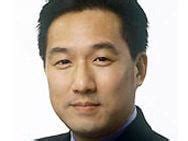A Quote by Daniel Levitin
President Trump, when challenged on facts, says that many people feel the way he does. But feelings should not take the place of reason in matters of public policy.
Related Quotes
Trump says things others so desperately want to say to people that work, to people wherever they encounter them. Trump says it. Trump carries a banner of this stuff for people. He says and acts in ways that they do in private, but can't get away with in public. But Trump is. It makes him a hero to these people.
To the extent that President Trump means strengthened border security, I am fully in favor of the idea that the rule of the law, secure borders and public safety should prevail. Drugs should not enter illegally. Migration should take place in accordance with lawful norms and secure and safe procedures.
President Trump's frequent, unfiltered use of his personal Twitter account as a means of official communication is unprecedented. If the President is going to take to social media to make sudden public policy proclamations, we must ensure that these statements are documented and preserved for future reference.
I've said to [Donald Trump], and I think others have said to him that the day that he is the President of the United States, there are world capitals and financial markets and people all around the world who take really seriously what he says, and in a way that's just not true before you're actually sworn in as president.
President-elect Trump has the vision. And what Mike Pence brings to the table as vice president-elect is somebody who knows Capitol Hill. So he can take Donald Trump's vision, help translate that into actual policy, legislative language, bill text, working through the process so that it ends up back on Donald Trump's desk so that he can sign it into law.
What President Obama has done so masterfully of late is to say, in so many words, "I'm signing this executive order permitting federal funding for stem cell research, but I realize that many good, moral people are opposed to this, and I don't take that lightly." I think we can be more civil and empathetic in our discussions of public policy, and I hope my book can be a contribution to that tone.
Let’s take this figure of the feminist killjoy seriously. Does the feminist kill other people’s joy by pointing out moments of sexism? Or does she expose the bad feelings that get hidden, displaced, or negated under public signs of joy? Does bad feeling enter the room when somebody expresses anger about things, or could anger be the moment when the bad feelings that circulate through objects get brought to the surface in a certain way?





































